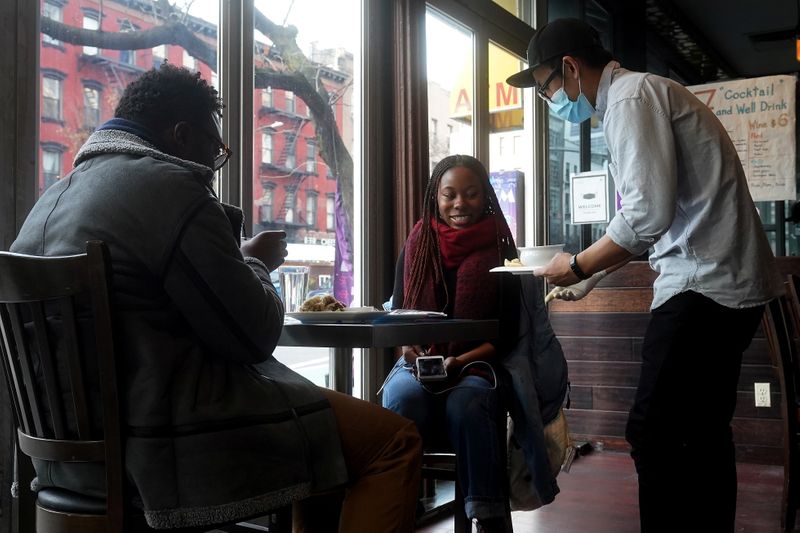NEW YORK (Reuters) -New York City's restaurants must stop serving meals indoors on Monday as COVID-19 hospitalizations fail to stabilize and the infection rate for the virus rises in the densely populated metropolis, Governor Andrew Cuomo said on Friday.
The governor acknowledged that indoor dining accounts for only a fraction of the city's new cases, but said he was concerned about an "Rt 1.3" transmission rate, meaning that one infected person transmits it to 1.3 others.
“The Rt rate going up in a dense environment is really a compounding problem,” Cuomo told a news briefing. "New York City is different. A high transmission rate in a dense environment is different."
Nearly three-quarters of the state's coronavirus infections have come from private gatherings, or "living room spread," while only 1.4% of them could be traced to restaurants and bars, Cuomo said.
The move comes a little more than 10 weeks after the city's restaurants were allowed to resume indoor dining, but only at 25% of capacity, for the first time since March.
Many added outdoor pavilions in anticipation of the move, which Cuomo warned would happen if the hospitalization rate did not stabilize.
Although the state's coronavirus positivity rate, which was just under 5% on Thursday, is among the lowest in the country, COVID-19 hospitalizations have climbed to 5,321, raising concerns about stress on its healthcare system, Cuomo said.
Cuomo also said a state task force unanimously approved the decision by a U.S. Food and Drug Administration advisory panel to recommend approval of Pfizer (NYSE:PFE)'s coronavirus vaccine.
New York is one of a handful of states to assemble panels to independently review the federal government’s approval before the vaccine could be distributed locally.

The first shipment of 170,000 doses of the Pfizer vaccine could arrive in the state as soon as early as Sunday, while another 346,000 doses of a vaccine manufactured by Moderna are expected in the Dec. 21 week, Cuomo said.